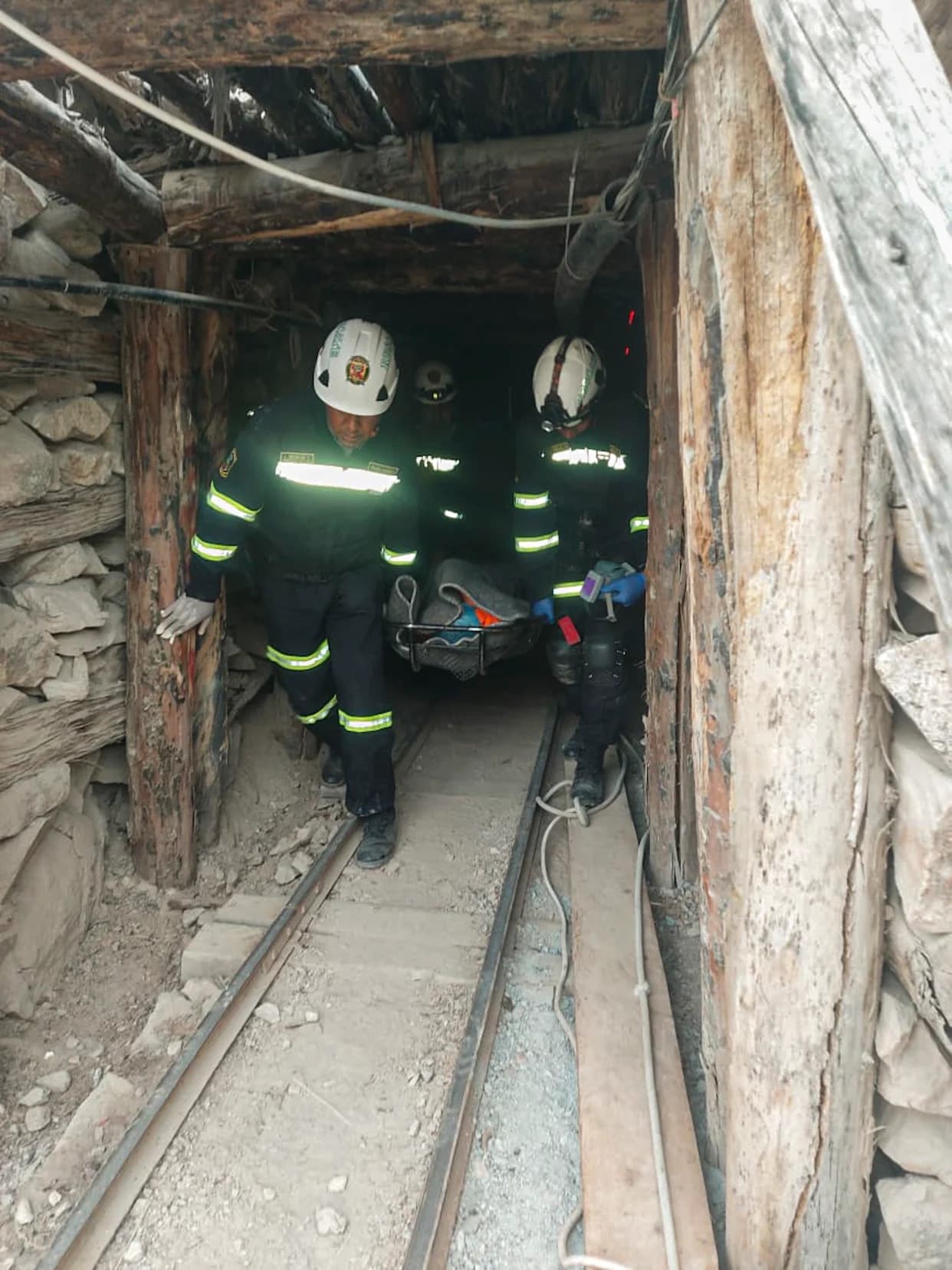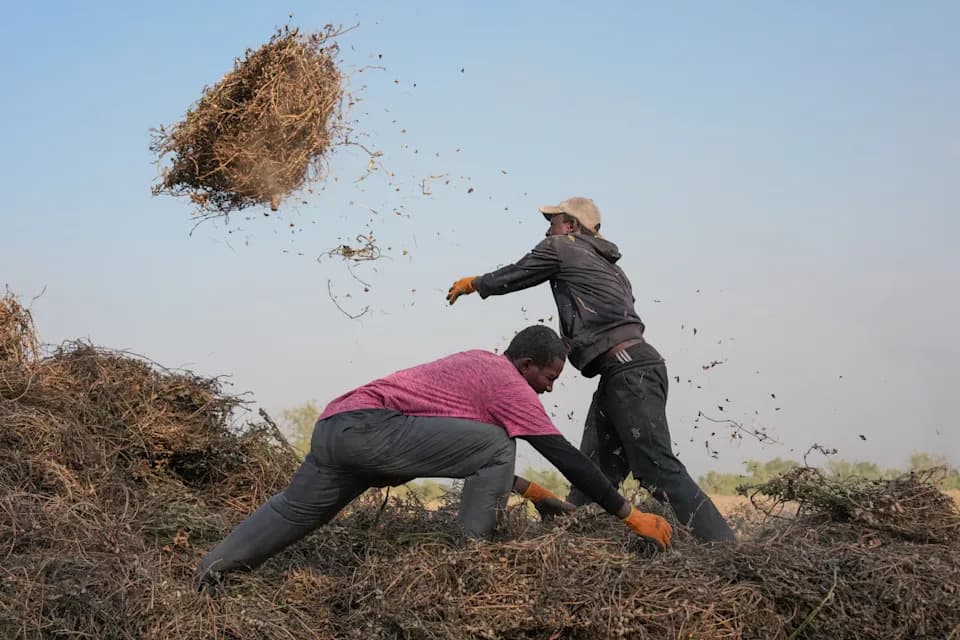Jema Anti-Galamsey Advocacy, a 14-member volunteer patrol in western Ghana, has spent a year monitoring rivers and forests to deter illegal gold mining that has contaminated waterways and attracted unemployed youth. Economic strain — including inflation above 50% and nearly 39% youth unemployment — has driven many toward galamsey, while Ghana may have lost $11.4 billion to gold smuggling in five years. Volunteers detain suspects and hand them to police, but critics warn that unsupervised citizen enforcement risks human rights abuses. Locals call for government action, faster prosecutions and alternative livelihoods such as tourism to reduce reliance on illegal mining.
Volunteer Patrols Fight Ghana’s 'Galamsey' — Protecting Rivers as Illegal Gold Mining and Smuggling Surge

Community volunteers patrol forests and rivers to curb illegal gold mining in Jema
JEMA, Ghana — At dawn in a remote corner of western Ghana, a 14-member volunteer team of priests, farmers and other residents walks the Jema Forest Reserve and riverbanks searching for signs of illegal gold mining, locally known as galamsey. The grassroots group, called the Jema Anti-Galamsey Advocacy, says weekly patrols have helped keep water sources in its roughly 450-square-kilometer (173-square-mile) area comparatively clean.
Background: rising contamination and economic pressures
Ghana, one of the world’s top gold producers, is battling a surge in unauthorized mining. Authorities and environmental groups report that cyanide and mercury from illicit operations have contaminated large stretches of the country’s waterways. The development nonprofit Swissaid estimates Ghana lost $11.4 billion to gold smuggling over the past five years.
The country’s economy has weakened since the COVID-19 pandemic: inflation topped 50% — a 21-year high — and government figures show nearly 39% of young people are unemployed. Those pressures have pushed many into illegal pits and sluices in search of quick income.
Local enforcement: how Jema responds
Since 2015, the Jema community of about 15,000 people has prohibited mining on communal land under customary law, which gives chiefs and family heads authority over local territories. Volunteers patrol at least once a week, carrying sticks rather than weapons, looking for milky or discolored water, newly cleared forest patches and other signs of mining activity. When villagers tip them off, they detain suspected miners and hand them to the district police — a practice allowed under Ghanaian law in certain circumstances.
So far the group has detained, among others, two Nigerien nationals caught attempting to mine in the reserve; the court case is proceeding slowly, prompting calls from residents for special courts to speed prosecutions.
"All our water bodies that take their source here are clean because of our strong resistance to galamsey." — Joseph Blay, Catholic priest and founder of the task force
Risks, criticism and national response
While volunteers argue they are filling an enforcement gap, civil society groups warn of risks when unsupervised citizen patrols operate without clear oversight. Festus Kofi Aubyn of the West Africa Network for Peacebuilding cautioned that unregulated groups could lead to human rights abuses, including ethnic targeting or stereotyping. Conservationist Daryl Bosu said the government's limited success in clamping down on illegal mining points to a lack of political will.
Nationally, street protests last year pressured the government into action. President John Mahama, who took office in January, has created a national task force to address galamsey but has rejected calls for a state of emergency that would expand military and police powers.
Community tensions and calls for solutions
The patrols have exposed divisions within Jema: some residents, facing rising fertilizer costs and declining farm incomes, say they might consider selling land to miners. Local leaders urge investment in alternative livelihoods to reduce the economic appeal of illegal mining. Priest Blay has proposed converting the Jema Forest Reserve into a tourism park to create sustainable jobs.
Residents are asking for stronger, faster prosecutions through special courts, better state enforcement, and targeted economic programs to absorb young people who might otherwise turn to galamsey. As Jema’s volunteers put it, their patrols are a last line of defense for local waterways and forests — effective in places, but potentially dangerous without appropriate oversight and legal support.
Key facts: as of January 2024, the Ministry of Lands and Natural Resources reported illegal miners in 44 of Ghana’s 288 forest reserves, with nine reserves described as "completely taken by armed thugs."
Help us improve.




























